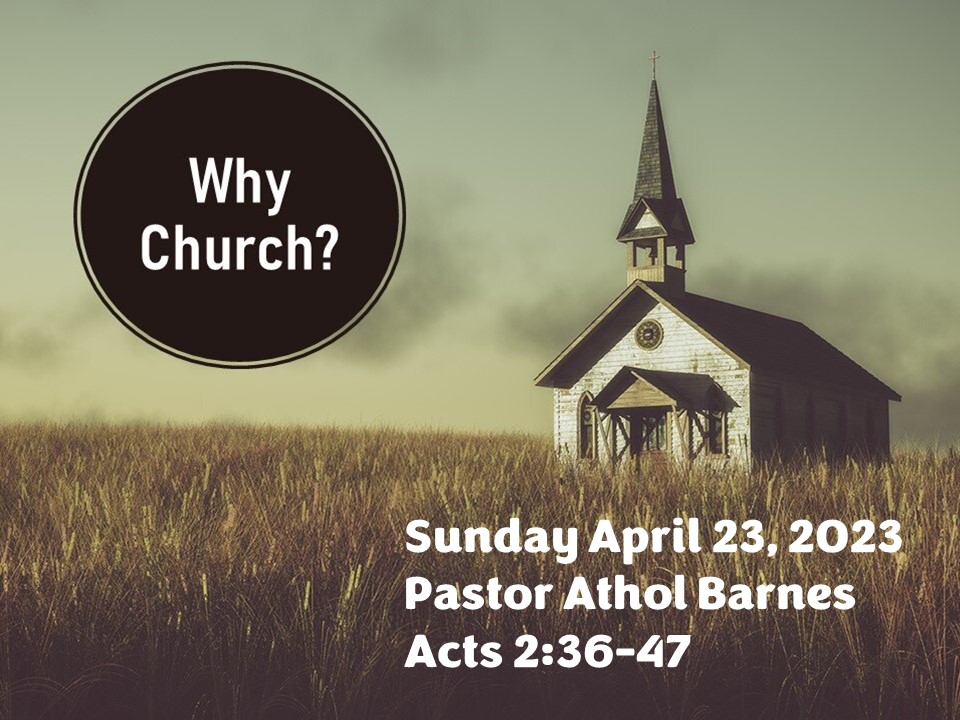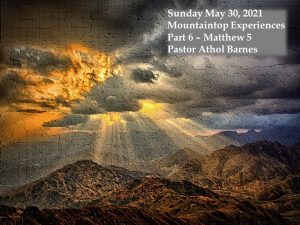
A little boy said, “Dad, did Grandpa make you go to Sunday school when you were my age?”
His father said, “He sure did. We went every Sunday.”
The boy said sadly, “Well, I bet it won’t do me any good either.”
Is that the purpose of the church? To make us good people?
Is the church a humanitarian organization, or does it exist for a more significant purpose?
The Bible frequently refers to the church as the Body of Christ (Romans 12:5).
Much of the emphasis today is on what the church does in relation to social change and mission rather than on focusing on God and the essence of worship.
In fact, today the church is viewed by many as being dynamic and flexible, changing with the culture and times. However, if we change the church identity to adapt to the world, rather than the church being a change agent in the world, how can we call ourselves a church that is based on the unchanging Gospel of Jesus Christ.
If the church constantly changes to adapt to the world, that church has ceased to worship God, but rather is worshipping a god of their own creation, one who affirms what they affirm and always approves of their lifestyle. That is humanism and idolatry.
The church is called the Body of Christ, and as the Body of Christ, we ought to display the power of God to our community in faith.
In Acts 2, Peter preaches the church’s first evangelistic sermon after the Holy Spirit empowered the 120 who had gathered in the upper room in Jerusalem at Pentecost. The powerful proclamation empowered by the Holy Spirit led to the salvation of 3000 people.
Peter told the people the hard truth about Jesus and their own part in his crucifixion, it was a bold word.
As the church, do we boldly proclaim the truth of God’s word? Truth as it relates to all the issues the world is dealing with today. The truth is found in God’s word. Are we proclaiming it?
The church was born and in verse 42 we read, “And they devoted themselves to the apostles’ teaching and the fellowship, to the breaking of bread and the prayers.”
Devotions means dedication or commitment to a cause or a purpose. One of the greatest fears in our culture is commitment, devotion means commitment. It means showing up, being present, and being involved.
Sadly, the average person who calls themselves a Christian church goer, attends church less than twice a month.
The church devoted themselves to fellowship and breaking of bread and prayer.
“Breaking of bread”, probably refers to their regular meals, but at the close of each meal, they probably paused to remember the Lord by observing what we call “the Lord’s Supper.”
The word “fellowship” is more than simply gathering in the same room and talking. It means “having in common,” and this was a practice of sharing their possessions and material goods with one another. It was not a form of communism; it was voluntary sharing out of love for one another.
That is community, being willing to help and give even when it costs. There is a lot of talk about community and the ideal church being this 1st century church, but we as 21st century people will not be able to come close without some radical changes in our values.
We won’t attain true community because we are selfish and comfortable people who are told from an early age that we are owed possessions, comfort, and respect.
The first church was a selfless community. We want community, but we aren’t willing to be selfless.
This doesn’t mean we cannot have community; it just means that we will always fall short of what the early church experienced due to our culture and our own innate selfishness.
The early church devoted themselves to prayer.
The most powerful thing we can do with our time is prayer, and yet we neglect prayer.
Prayer is talking to God and hearing from Him. It is a conversation with the all-powerful, all-knowing creator of the universe. What an incredible privilege.
Jesus spent a lot of time in prayer, and he prayed out loud in front of his disciples. If the most powerful being in the universe prayed for himself, what makes us think we can get by without prayer?
Prayer is not about using eloquent language; it is about simple, childlike faith in coming to our Heavenly Father.
The church that was devoted to teaching the Word, fellowship, breaking bread, and prayer had powerful fruit. Verse 43 says, “And awecame upon every soul, and many wonders and signs were being done through the apostles.”
That word “awe” is the fear of the Lord. Fear of the Lord is morality, that is governed by reverence, respect and honor for God. We see an epidemic of moral failures in the church, because we have no awe, no fear of the Lord.
Why? Because there is no selfless and transparent commitment to fellowship, teaching and prayer. No true church.
This church was vibrant, effective, and powerful. Verse 43 says that they witnessed signs and wonders.
We should come together weekly with an expectation of the supernatural God doing supernatural things in our midst.
The results of this supernatural church community is spelt out in verse 47, “…And the Lord added to their number day by day those who were being saved.”
The entire world was turned upside down (Acts 17:6).
So why church? Our world needs the church. Our world needs a church that is vibrant, that is devoted to the Word of God, fellowship, and prayer.
The primary means by which the early church “turned the world upside down” was the authentic faith of those who followed Jesus. Displaying the power and love of the Lord Jesus Christ.
What would our world look like if the modern-day church devoted themselves to the Word, fellowship and prayer?


